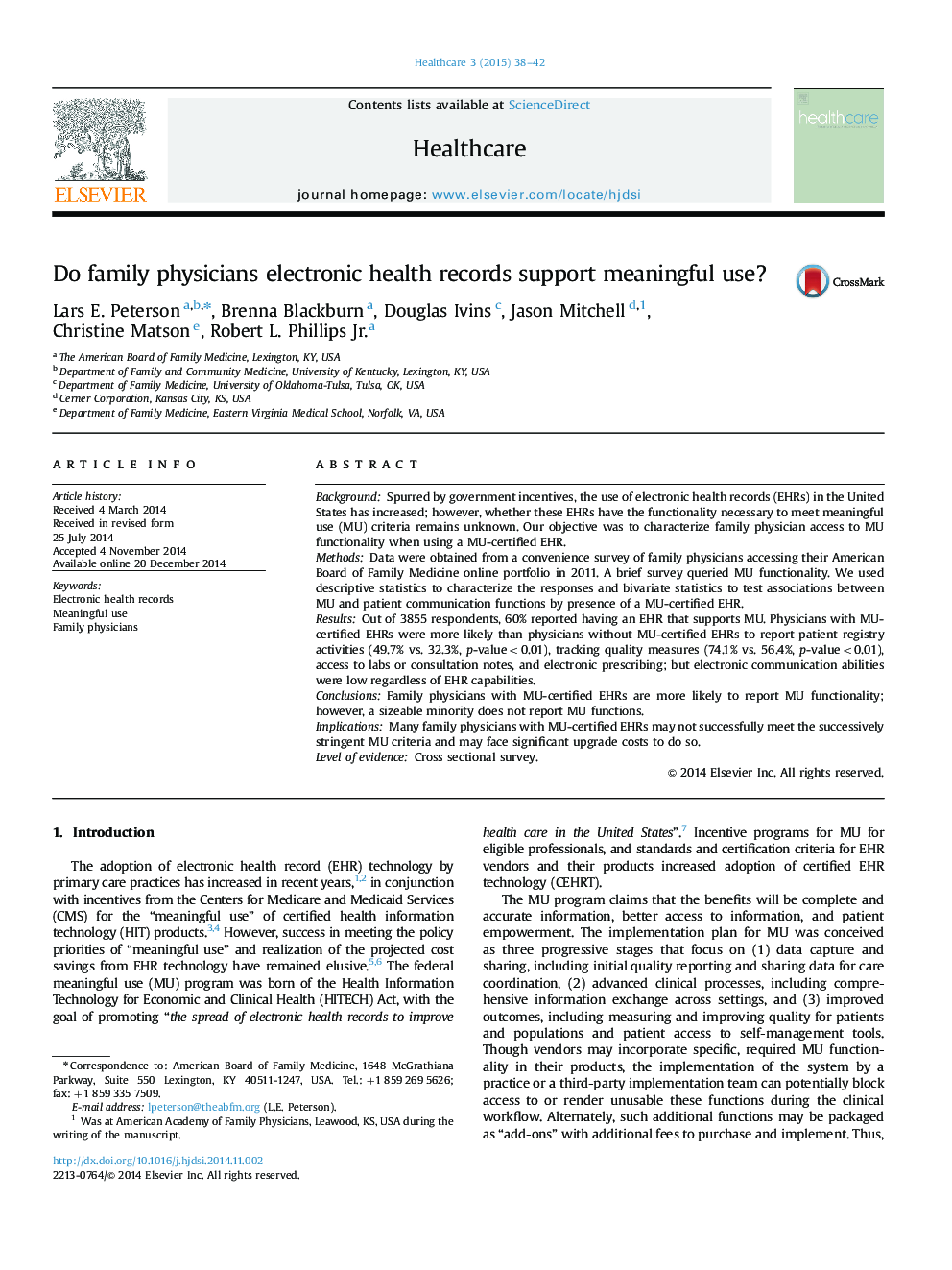| Article ID | Journal | Published Year | Pages | File Type |
|---|---|---|---|---|
| 514921 | Healthcare | 2015 | 5 Pages |
BackgroundSpurred by government incentives, the use of electronic health records (EHRs) in the United States has increased; however, whether these EHRs have the functionality necessary to meet meaningful use (MU) criteria remains unknown. Our objective was to characterize family physician access to MU functionality when using a MU-certified EHR.MethodsData were obtained from a convenience survey of family physicians accessing their American Board of Family Medicine online portfolio in 2011. A brief survey queried MU functionality. We used descriptive statistics to characterize the responses and bivariate statistics to test associations between MU and patient communication functions by presence of a MU-certified EHR.ResultsOut of 3855 respondents, 60% reported having an EHR that supports MU. Physicians with MU-certified EHRs were more likely than physicians without MU-certified EHRs to report patient registry activities (49.7% vs. 32.3%, p-value<0.01), tracking quality measures (74.1% vs. 56.4%, p-value<0.01), access to labs or consultation notes, and electronic prescribing; but electronic communication abilities were low regardless of EHR capabilities.ConclusionsFamily physicians with MU-certified EHRs are more likely to report MU functionality; however, a sizeable minority does not report MU functions.ImplicationsMany family physicians with MU-certified EHRs may not successfully meet the successively stringent MU criteria and may face significant upgrade costs to do so.Level of evidenceCross sectional survey.
